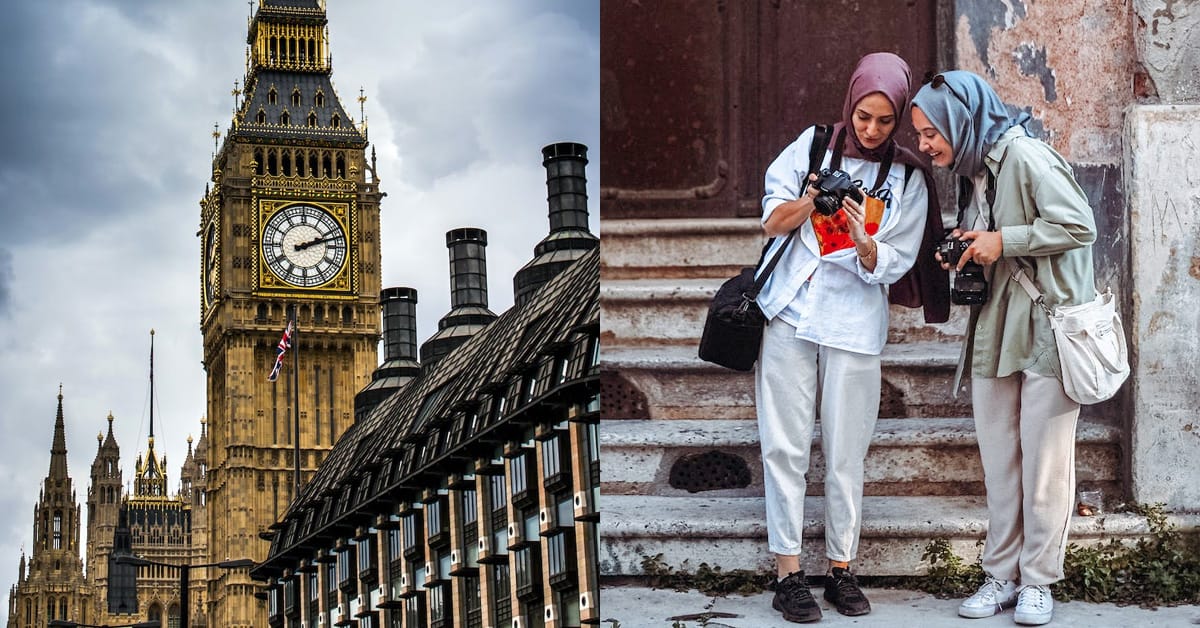The United Kingdom is a diverse and multicultural country that welcomes visitors from all over the world, including Muslim travellers. With a rich history and a vibrant contemporary culture, the UK offers a range of experiences for those seeking to explore its cities, countryside, and coastline.
From the bustling streets of London to the tranquil landscapes of Scotland, the UK is a destination that offers something for everyone.
Is UK Muslim friendly?
Is UK Muslim friendly?
The UK is generally considered to be Muslim-friendly, as it is a multicultural and diverse country that values tolerance and respect for different religions and cultures.
There are many mosques, halal restaurants, and Islamic cultural centers throughout the country, particularly in larger cities like London, Birmingham, and Manchester.
However, like any country, there may be isolated incidents of discrimination or Islamophobia, but these do not represent the overall attitude of the majority of the population.
Does UK have halal food?
Yes, the UK has halal food available in many restaurants and supermarkets.
There are also many halal-certified food suppliers and butchers in the UK.
What is the largest mosque in UK?
The largest mosque in the UK is the Baitul Futuh Mosque, located in Morden, South London.
It was built by the Ahmadiyya Muslim Community and opened in 2003.
The mosque can accommodate up to 10,000 worshippers and covers an area of 5.2 acres. It also has a large prayer hall, classrooms, offices, and a library.
The mosque is open to visitors and offers guided tours to non-Muslims.
Is UK safe for Muslim?
The UK is a diverse and multicultural country that values religious freedom and tolerance. Muslims are an integral part of British society, and the vast majority of them live peacefully and safely in the UK.
However, like any other country, there may be isolated incidents of discrimination or hate crimes against Muslims, but the UK government and law enforcement agencies take such incidents seriously and work to prevent them.
Are there many Muslims in UK?
Yes, there are many Muslims in the UK.
According to the 2011 UK Census, there were 2.7 million Muslims in England and Wales, making up 4.8% of the population.
In Scotland, there were 76,000 Muslims, making up 1.4% of the population.
The Muslim population in the UK has continued to grow since then, with estimates suggesting that there are now around 3.4 million Muslims in the country.
Is UK a good place to live in for Muslims?
The UK is a diverse and multicultural country that respects and accommodates different religions, including Islam.
Muslims in the UK have the freedom to practice their religion and have access to mosques, halal food, and other Islamic facilities.
The UK also has a significant Muslim population, with many communities and organizations that support and promote Islamic culture and values.
However, like any country, there may be challenges and issues that Muslims face, such as discrimination or Islamophobia.
Overall, the UK can be a good place to live in for Muslims, but it ultimately depends on individual experiences and perspectives.
As a Muslim, what should I prepare before travelling to UK?
Here are some general information on what a Muslim traveller may need to prepare before traveling to the UK:
- Visa: Check if you need a visa to enter the UK and apply for it in advance.
- Halal food: Research halal restaurants and food options in the area you will be staying in.
- Prayer facilities: Find out where the nearest mosques or prayer facilities are located.
- Clothing: Pack appropriate clothing for the weather and cultural norms. It is recommended to dress modestly and cover your head if you are a woman.
- Medications: Bring any necessary medications and prescriptions with you.
- Currency: Exchange your currency to British pounds before traveling or withdraw money from ATMs in the UK.
- Communication: If you do not speak English, consider learning some basic phrases or bring a translation app with you.
- Culture: Familiarize yourself with British culture and customs to avoid any misunderstandings or cultural clashes.

